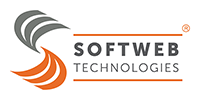If the new EU Deforestation-Free Regulation – EUDR guidelines feels overwhelming, you’re not alone. Whether you’re managing procurement, sustainability, or compliance, adapting to this regulation is a significant challenge. But don’t worry—this blog breaks it down so you can navigate EUDR with confidence.
What is the EU Deforestation Regulation (EUDR)?
The EUDR is a landmark regulation designed to combat global deforestation by restricting products linked to deforestation from entering the EU market. This regulation, effective June 29, 2023, requires full compliance by December 30, 2024. It aims to cut the connection between EU consumption and deforestation, promoting sustainability and ethical trade practices.
Why is Tackling Deforestation Important?
The Role of Forests
Forests act as the Earth’s lungs, absorbing carbon dioxide and regulating the planet’s climate. They are home to diverse ecosystems and crucial for biodiversity. Losing forests disrupts this balance, accelerates climate change, and threatens countless species.
The Consequences of Deforestation
Deforestation, the large-scale clearing of forests, has severe impacts:
–Climate Change: Releases stored carbon dioxide, worsening global warming.
– Biodiversity Loss: Destroys habitats and leads to species extinction.
– Environmental Degradation: Causes soil erosion, water cycle disruptions, and ecological imbalances.
Key Features of the EUDR Guidelines
Targeted Commodities
The EUDR focuses on products often linked to deforestation, including:
–Raw materials:
Coffee, cocoa, soy, beef, palm oil, wood, and rubber.
– Derivatives:
Chocolate, leather, furniture, tires, and more.
Due Diligence Requirements
According to EUDR Guidelines companies must conduct thorough due diligence to ensure their products are deforestation-free. This involves:
– Collecting Information: Including product descriptions, origin details, and geographic coordinates of production areas.
– Risk Assessment: Analyzing deforestation risks based on local laws, protected areas, and sustainability standards.
– Risk Mitigation: Taking corrective measures like sourcing from certified suppliers and adopting traceability systems.
– Due Diligence Statement: Submitting proof of compliance to the EU authorities.
Who Needs to Comply with EUDR Guidelines?
The EUDR guidelines applies to businesses dealing with targeted commodities in the EU market, including:
– EU-based companies importing, selling, or exporting these products.
– International companies wanting to access the EU market.
It differentiates between:
– Operators: First to place the product on the EU market.
– Traders: Those who resell the product within the EU.
Challenges in EUDR Compliance
Adapting to EUDR comes with hurdles:
Traceability Complexities:
Mapping global supply chains and verifying compliance with local laws is resource-intensive.
Cost Implications:
Monitoring and aligning supply chains may increase operational costs.
Market Shifts:
There’s a risk of deforestation moving to non-compliant regions, undermining the regulation’s goals.
Resistance from Exporting Nations:
Countries impacted by the law might contest it through trade disputes.
Impact on Small Producers:
Smaller suppliers and growers may struggle to meet compliance standards, potentially excluding them from markets.
Penalties for Non-Compliance of EUDR Guidelines
Non-compliance with EUDR can result in severe consequences:
– Fines: Up to 4% (or higher) of annual revenue.
– Seizures: Confiscation of non-compliant goods and profits.
– Market Exclusion: Ban on selling non-compliant products in the EU.
– Reputational Damage: Loss of trust from consumers and stakeholders.
These penalties highlight the importance of aligning your business with EUDR requirements.
Traceability: The Backbone of EUDR Compliance
Why Traceability Matters
Traceability ensures transparency in supply chains, allowing businesses to verify that their products are sourced ethically and meet EUDR standards. It involves tracking commodities from origin to the final product, ensuring compliance at every stage.
Role of Technology in EUDR
Softweb Technologies simplify EUDR traceability by:
– Collecting and managing data, including geographic coordinates and supply chain details.
– Monitoring supply chains in real-time for quick risk detection and corrective action.
– Ensuring compliance through detailed reporting and documentation.
Adopting such tools can significantly streamline EUDR compliance efforts.
How to Prepare for EUDR Guidelines
Steps to Take
- Understand the Regulation: Familiarize yourself with EUDR’s requirements and deadlines.
- Establish Traceability Systems: Use digital tools to track product origins and supply chain movements.
- Work with Suppliers: Ensure your partners follow sustainable and compliant practices.
- Conduct Regular Audits: Continuously monitor and assess supply chain risks.
- Seek Expert Guidance: Collaborate with consultants specializing in sustainability and EUDR compliance.
Long-Term Benefits of EUDR Compliance
Complying with EUDR not only avoids penalties but also:
– Enhances your brand’s reputation.
– Aligns with global sustainability goals.
– Builds trust among consumers and stakeholders.
Balancing Sustainability with Economic Goals
The EUDR represents a significant step toward a greener future. However, balancing economic interests with environmental responsibilities requires collaboration between businesses, governments, and consumers. International cooperation and innovation will be crucial to achieving the regulation’s goals without unintended consequences.
The EU Deforestation-Free Regulation (EUDR) is a wake-up call for businesses to prioritize sustainability and transparency in their supply chains. By complying with these regulations, companies not only avoid penalties but also contribute to protecting our planet’s forests and biodiversity. The journey toward deforestation-free supply chains may seem daunting, but with the right tools and strategies, it becomes manageable and rewarding.
Softweb Technologies offers a cutting-edge Traceability and Transparency Solution tailored to meet the requirements of the EUDR. With features like:
- Advanced Data Collection: Capture detailed information about commodities, including origin and geographical coordinates.
- Real-Time Monitoring: Continuously track products from source to market, detecting anomalies and risks early.
- Seamless Compliance: Ensure due diligence with risk assessments, mitigation strategies, and transparent reporting.
Softweb Technologies empowers businesses to align with the EUDR while fostering ethical and sustainable practices with Digital Transformation. Together, we can protect forests, combat climate change, and build a greener, more responsible future.
Ready to make your supply chain deforestation-free? Explore Softweb Technologies’ solutions and take the first step toward compliance and sustainability today!
Together, let’s work toward deforestation-free supply chains and a healthier planet!


